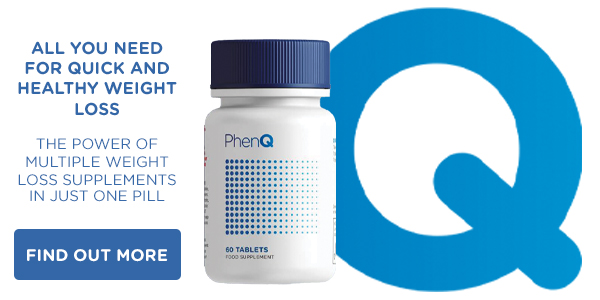Do you find yourself searching the internet for answers to your questions about taking medications together? If so, then this blog post is for you.
Today we're going to look at the potential risks of combining antibiotics and phentermine, two medications that are often taken without consulting a doctor.
We'll look at what each medication does, why it might be taken in combination with an antibiotic, and discuss the potential side effects of doing so.
By armed with the right knowledge about these medications, you can make an informed decision on whether or not it's safe to take them together—so read on!

Can You Take Antibiotics with Phentermine?
Can You Take Antibiotics with Phentermine? The simple answer to this question is no. Phentermine is classified as an appetite suppressant and stimulant, so taking it along with antibiotics may lead to serious side effects.
Theoretically, both drugs may interact in a negative way since they are both absorbed through the same pathways of the body's systems. There could be a decrease in the effectiveness of either drug when taken together and an increased risk of adverse reactions. Anecdotally, some people report feeling dizzy or lightheaded when mixing these drugs.
That said, you should always consult your healthcare provider before taking any medications together – even if it's not against FDA guidelines to do so.
In general, experts recommend refraining from taking any combination treatments unless prescribed by a doctor or medical professional for specific health issues due to rare but potentially dangerous interactions between medications that can occur even without mixing them intentionally.
It’s also important to note that phentermine comes with its own risks as well – including potential addiction when used for too long (longer than 12 weeks) and side effects such as heart palpitations, dry mouth, trouble sleeping or constipation when taken improperly or on an empty stomach (always take phentermine after eating).
Therefore, it’s important to talk with your doctor about all available options before making any decisions regarding medication use and/or lifestyle changes necessary for treating obesity-related conditions like type 2 diabetes & hypertension.
Related: Can Phentermine Make You Tired?
Are there any specific antibiotics that should not be taken with phentermine?
Yes, there are a few specific antibiotics that should not be taken with phentermine. These include:
- Linezolid (Zyvox)
- Isocarboxazid (Marplan)
- Phenelzine (Nardil)
- Tranylcypromine (Parnate)
These antibiotics can interact with phentermine and cause serious side effects, such as high blood pressure, seizures, and serotonin syndrome.
Serotonin syndrome is a life-threatening condition that can occur when the body has too much of the neurotransmitter serotonin. Symptoms of serotonin syndrome include headache, fever, agitation, sweating, and muscle tremors.
If you are taking phentermine and need to take antibiotics, your doctor will be able to choose an antibiotic that is safe to take with phentermine.
What are the potential risks of combining Antibiotics and Phentermine?
The potential risks of combining antibiotics and phentermine include:
- High blood pressure: Phentermine can cause high blood pressure, and some antibiotics can interact with phentermine and make high blood pressure worse.
- Serotonin syndrome: Serotonin syndrome is a life-threatening condition that can occur when the body has too much of the neurotransmitter serotonin. Symptoms of serotonin syndrome include headache, fever, agitation, sweating, and muscle tremors. Phentermine and some antibiotics can increase the risk of serotonin syndrome.
- Seizures: Phentermine and some antibiotics can interact and increase the risk of seizures.
- Other side effects: Other potential side effects of combining antibiotics and phentermine include dizziness, headache, nausea, and vomiting.
It is important to note that the risks of combining antibiotics and phentermine will vary depending on the specific antibiotics being taken and the individual's medical history. Some people may experience no side effects, while others may experience serious side effects.

Can I take Amoxicillin with Phentermine?
Yes, amoxicillin is generally safe to take with phentermine. Amoxicillin is a common antibiotic that is used to treat a variety of infections, including ear infections, sinus infections, and pneumonia. Phentermine is a weight loss medication that works by suppressing appetite and increasing metabolism.
There are no known interactions between amoxicillin and phentermine. However, it is always a good idea to talk to your doctor before taking any new medication, especially if you are taking other medications.
Can I take Phentermine with Ciprofloxacin?
It is generally not recommended to take phentermine with ciprofloxacin. Ciprofloxacin is a broad-spectrum antibiotic that is used to treat a variety of infections, including urinary tract infections, respiratory infections, and bone and joint infections.
Phentermine is a weight loss medication that works by suppressing appetite and increasing metabolism.
Ciprofloxacin can inhibit the metabolism of phentermine, which can lead to increased levels of phentermine in the body. This can increase the risk of side effects, such as high blood pressure, heart problems, and stroke.
What’s A Better Weight-Loss Drug Than Phentermine?
PhenQ is a popular over-the-counter weight loss supplement that is often recommended as a better alternative to phentermine.
Phentermine is a prescription weight loss medication that has been shown to be effective in promoting weight loss, but it can also have serious side effects, such as high blood pressure, heart problems, and stroke.
PhenQ, on the other hand, is made with natural ingredients and is generally safe for most people to take.
PhenQ works by targeting multiple aspects of weight loss, including:
- Suppressing appetite: PhenQ contains ingredients that help to suppress appetite and reduce cravings, which can help you to eat less and lose weight.
- Boosting metabolism: PhenQ contains ingredients that help to boost metabolism and increase calorie burning.
- Preventing fat storage: PhenQ contains ingredients that help to prevent the body from storing new fat.
- Promoting fat burning: PhenQ contains ingredients that help to promote the burning of stored fat.
In addition to these weight loss benefits, PhenQ has also been shown to improve mood, energy levels, and cognitive function.
Here is a summary of the key differences between phentermine and PhenQ:
| Feature | Phentermine | PhenQ |
|---|---|---|
| Prescription required | Yes | No |
| Side effects | Can cause serious side effects, such as high blood pressure, heart problems, and stroke | Generally safe for most people to take |
| Ingredients | Prescription medication | Natural ingredients |
| Mechanism of action | Works by suppressing appetite and increasing metabolism | Works by targeting multiple aspects of weight loss, including appetite suppression, metabolism boosting, fat storage prevention, and fat burning |
Overall, PhenQ is a safer and more natural alternative to phentermine that can help you to lose weight and improve your overall health.
However, it is important to note that PhenQ is not a magic bullet for weight loss. It is important to combine PhenQ with a healthy diet and regular exercise in order to achieve the best results.








